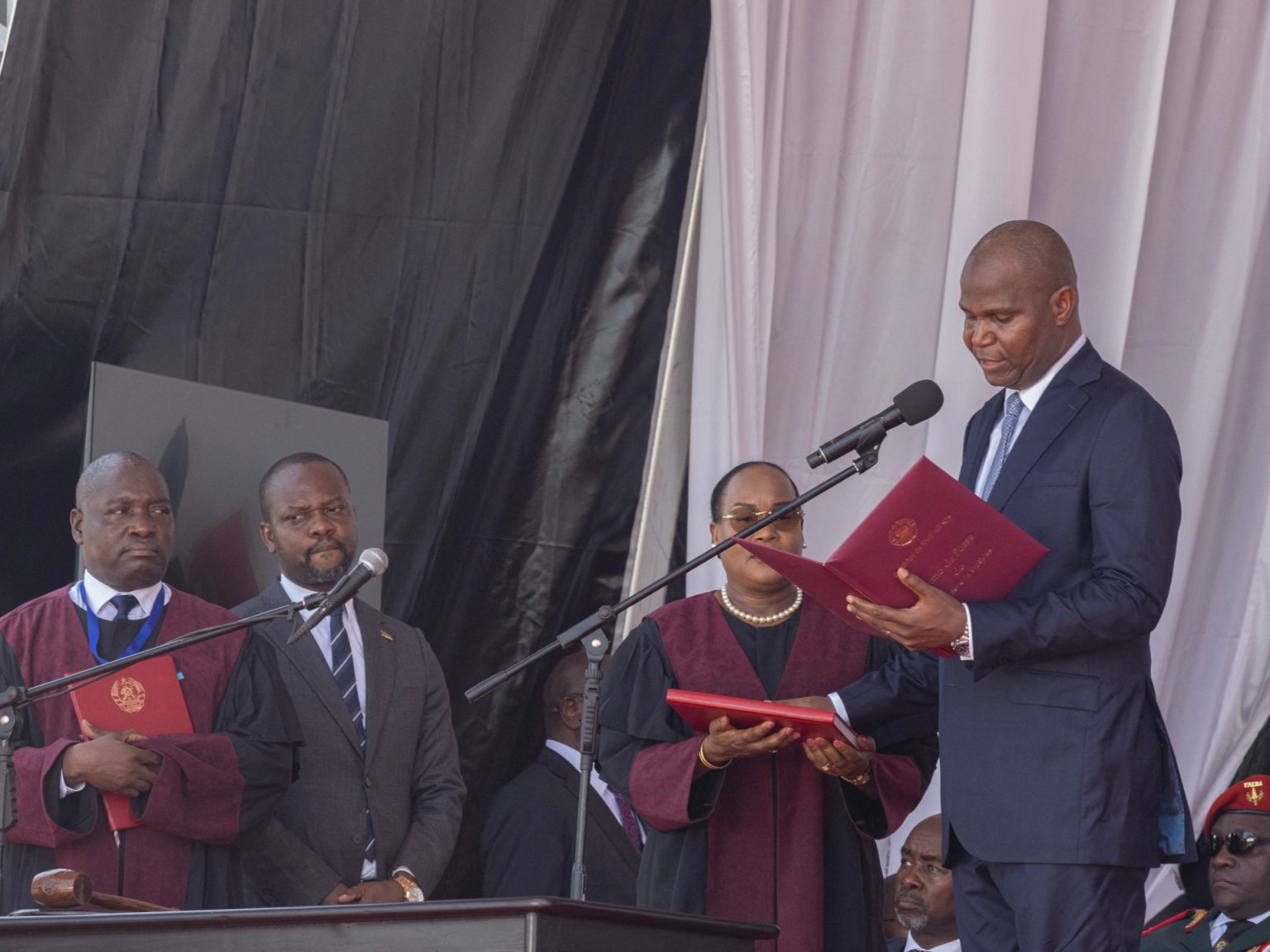Mozambique Inaugurates New President Amidst Post-Election Turmoil and Allegations of Fraud
Daniel Chapo of the long-ruling Frelimo party has been sworn in as the president of Mozambique, inheriting a nation grappling with deep political divisions and accusations of election fraud. The inauguration ceremony, held under tight security in Maputo, was attended by a limited audience of approximately 1,500 supporters, a stark contrast to the usual grandeur associated with such events. While Chapo pledged to uphold democracy, human rights, and improve the socio-economic conditions, the backdrop of the ceremony was overshadowed by allegations of widespread violence and vote rigging during the October 2023 elections.
The opposition, led by Venancio Mondlane, contests the election results, claiming victory and denouncing the official outcome as fraudulent. International observers have also raised concerns about irregularities in the electoral process, echoing the opposition’s claims. The European Union election observation mission specifically condemned the "unjustified alteration of election results," further fueling the opposition’s allegations. Civil society groups have reported a significant number of fatalities during post-election protests, claiming that over 300 people have been killed in clashes with security forces. These allegations paint a grim picture of the post-election landscape and raise serious concerns about human rights violations.
Despite the controversy surrounding the election, Chapo, a relatively unknown figure before his candidacy, has outlined an ambitious agenda for his presidency. He has promised to streamline the government by reducing the number of ministries, address youth unemployment, and prioritize health and education. These commitments aim to tackle some of the most pressing challenges facing Mozambique, but their implementation remains uncertain given the current political climate and the opposition’s vow to disrupt the government’s functioning.
The post-election period has been marked by widespread protests, the largest against the Frelimo party in Mozambique’s history. The opposition, energized by Mondlane’s return from self-imposed exile, has vowed to continue its demonstrations, threatening to "paralyse" the new government with daily protests. This unwavering stance sets the stage for a prolonged period of political unrest and uncertainty, posing a significant challenge to Chapo’s ability to govern effectively. The protests have already impacted foreign businesses operating in the resource-rich nation, raising concerns about the economic implications of the ongoing political turmoil.
Mozambique, despite its abundant natural resources, faces persistent poverty, widespread corruption, and an armed conflict in the north. These deep-seated issues have fueled discontent and contributed to the opposition’s momentum. The opposition blames Frelimo for years of economic decline and unemployment, arguing that the ruling party has failed to translate the country’s resource wealth into tangible benefits for its citizens. This narrative resonates with many Mozambicans, particularly the youth, who see Mondlane as a symbol of change and a departure from the status quo.
The inauguration of Daniel Chapo marks the beginning of a new chapter in Mozambique’s political history, but it is a chapter fraught with uncertainty and challenges. The contested election results, the allegations of violence, and the opposition’s vow to disrupt the government’s operations create a volatile political landscape. Whether Chapo can navigate these challenges and deliver on his promises remains to be seen. The future of Mozambique hinges on the ability of all stakeholders to engage in constructive dialogue and find a path towards stability and reconciliation. The international community also has a crucial role to play in supporting Mozambique’s democratic processes and ensuring respect for human rights.
Key takeaways:
- Disputed Election: The October 2023 presidential election was marred by allegations of fraud and irregularities, leading to widespread protests and a contested outcome.
- Post-Election Violence: Reports from civil society groups suggest a significant number of fatalities during post-election clashes between protesters and security forces.
- Opposition’s Stance: The opposition, led by Venancio Mondlane, rejects the election results and vows to continue protests, threatening to paralyze the government.
- Economic Concerns: The political instability has impacted foreign businesses and raises concerns about the economic future of the resource-rich nation.
- Deep-Seated Issues: Mozambique faces long-standing challenges of poverty, corruption, and armed conflict, which have fueled public discontent and contributed to the current political crisis.
The path forward for Mozambique remains uncertain, but the need for dialogue, reconciliation, and respect for human rights is paramount.

